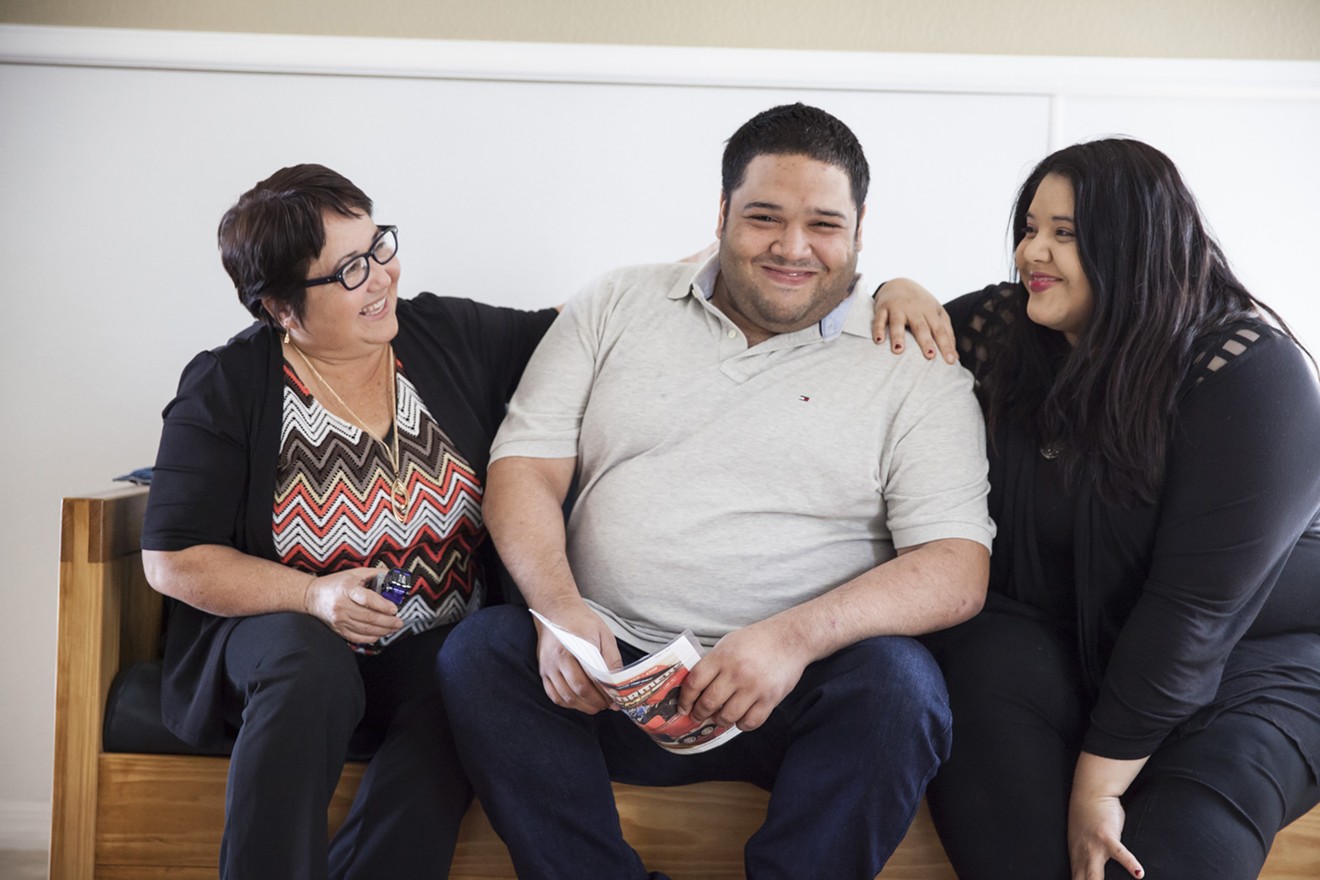Two hours after North Miami Police Officer Jonathan Aledda shot behavioral technician Charles Kinsey — an unarmed black man — Det. Michael Gaudio interviewed Kinsey's client with severe autism, 26-year-old Arnaldo Rios Soto.
"Do you remember what happened?" Gaudio asked.
"Yeah," Rios Soto answered.
"Can you tell me?"
"Yeah."
"Go ahead, tell me."
"Uh-huh."
"Do you know what you had in your hand?"
"Yes."
"What did you have in your hand?"
"Yeah," Rios Soto said.
Audio from the bizarre interrogation aired for the first time last week on the inaugural episode of Aftereffect, a new podcast from WNYC Studios hosted by health reporter Audrey Quinn. The eight-part series explores the effect of the July 2016 shooting on Rios Soto and its implications for adults with autism and developmental disabilities.
"In some ways, that interaction almost struck me as hard as the taped incident itself," Quinn says of the police interview. "It was so shocking that this officer would continue to question Arnaldo when he clearly wasn't engaging."
Though most coverage of the incident has focused on Kinsey, who was shot only a few days after Philando Castile and Alton Sterling were gunned down by police, Quinn says she began looking into the case after reporting on the autistic adult community last summer. Several advocates and parents mentioned the incident, which made national news and eventually led both Kinsey and Rios Soto to file lawsuits against the city.
Because of her focus on adults with development disabilities, Quinn says she wanted to follow Rios Soto and his family in the aftermath of the shooting.
"What happened to Arnaldo is just the worst-case fear for so many folks and their families," she says. "By no means did I want to take away from what happened to Charles, which was a really terrible injustice."
The inaugural episode brings listeners back to the day of the shooting, and Episode 2 documents Rios Soto's struggle to find a new group home after the incident. The rest of the series, recorded by Quinn over an eight-month period, explores the deficiencies in Florida's developmental disabilities services and the prevalence of abuse claims in one of the state's most notorious facilities.
[image-2]North Miami city officials declined to participate in the podcast, but Quinn spoke with former police chief Gary Eugene, who was fired after the shooting. Quinn says the ex-chief told her the department should have immediately owned up to its mistake.
"It was clearly a mess, a complete mess," Quinn says.
Almost a year after the shooting, the Miami-Dade State Attorney's Office charged Aledda with felony attempted manslaughter and misdemeanor culpable negligence; his case remains pending in criminal court. Despite a new state law requiring police to undergo training about autism, Quinn says the Rios Soto case illustrates the bigger picture needed for comprehensive disability services.
"The big issue I took away is that police are really not the proper folks to be responding when somebody with a developmental disability or mental-health disability has a crisis," she says.
New episodes of Aftereffect will be released every Monday and Friday through July 13.
[
{
"name": "Air - MediumRectangle - Inline Content - Mobile Display Size",
"component": "19274298",
"insertPoint": "2",
"requiredCountToDisplay": "2"
},{
"name": "Editor Picks",
"component": "17482312",
"insertPoint": "4",
"requiredCountToDisplay": "1"
},{
"name": "Inline Links",
"component": "18711090",
"insertPoint": "8th",
"startingPoint": 8,
"requiredCountToDisplay": "7",
"maxInsertions": 25
},{
"name": "Air - MediumRectangle - Combo - Inline Content",
"component": "17482310",
"insertPoint": "8th",
"startingPoint": 8,
"requiredCountToDisplay": "7",
"maxInsertions": 25
},{
"name": "Inline Links",
"component": "18711090",
"insertPoint": "8th",
"startingPoint": 12,
"requiredCountToDisplay": "11",
"maxInsertions": 25
},{
"name": "Air - Leaderboard Tower - Combo - Inline Content",
"component": "17482313",
"insertPoint": "8th",
"startingPoint": 12,
"requiredCountToDisplay": "11",
"maxInsertions": 25
}
]












